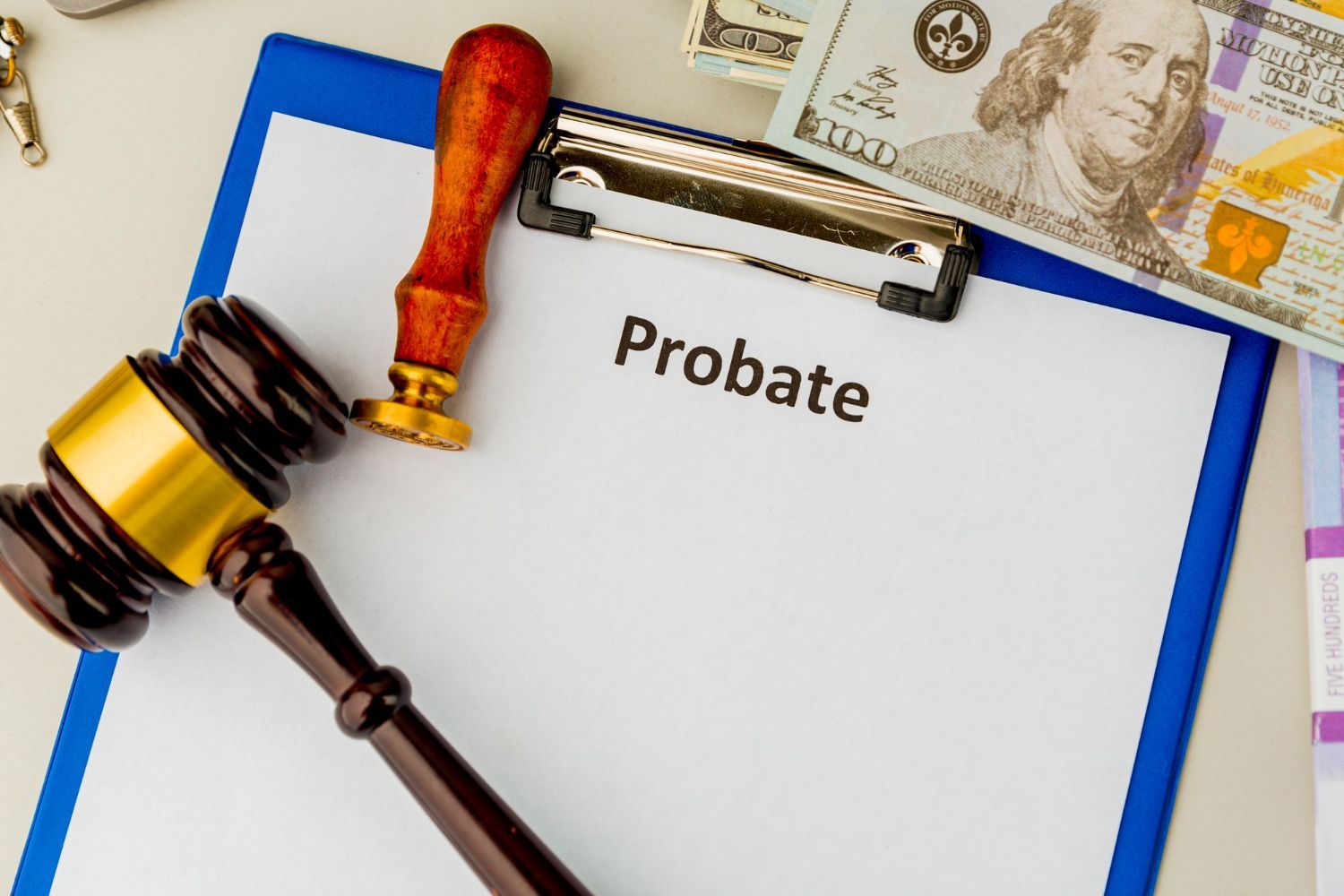Dealing With Missing or Destroyed Estate Documents
Losing or damaging estate documents can create serious setbacks during probate and estate administration. Whether it’s a missing will or a destroyed trust document, the absence of these records can delay the distribution of assets and even spark legal disputes among family members. It’s already a tough time when dealing with the loss of a loved one. The added stress of searching for or trying to fix incomplete estate paperwork just makes things harder.
In Georgia, probate courts typically rely on original estate documents to confirm the wishes of the deceased. When those documents are missing, the process becomes more complicated. But there are steps that can be taken to address the problem. Knowing what documents are important, how to spot what’s gone, and what to do next can help smooth out the process and avoid extra delays or confusion.
Identifying Missing Or Destroyed Documents
When someone passes away, family members or the named executor usually start reviewing the person’s records to figure out how their estate should be handled. Estate planning documents are the backbone of this process, and without them, things can go sideways pretty quickly. Recognizing what’s missing early on makes a big difference.
Here are some common estate documents people need to track down:
- Last will and testament
- Trust agreements (revocable or irrevocable)
- Power of attorney (though it no longer holds weight after death, it can give clues)
- Advance healthcare directives
- Property deeds and titles
- Beneficiary designations related to life insurance or retirement plans
Sometimes, people just aren’t sure a will or trust ever existed. Other times, the documents were thought to be stored safely but were lost after a move or even destroyed in a fire or flood. In some cases, relatives might find unsigned or incomplete drafts and mistakenly assume they’re valid.
If you're helping settle someone’s estate and can’t find the original papers, try these first steps:
1. Search the person's home or any safe deposit boxes they might have had.
2. Contact their bank, financial advisor, or accountant to see if they were given copies.
3. Ask other close family members or friends if they were ever told about or saw these documents.
4. Review emails or cloud storage for digital versions.
Even if you discover a copy rather than the original, that can help the probate process, but a lot depends on Georgia court rules. Probate courts in the state typically ask for original documents, especially when it comes to wills. Without the original, the court may treat the estate as if there was no will at all, triggering intestate succession laws.
That’s why it’s important not to delay. If you suspect something is missing or destroyed, getting legal help right away can prevent bigger problems in probate court. Even locating partial evidence can give a lawyer something to work with when evaluating how to proceed.
Legal Steps To Recover Estate Documents
Georgia probate law does allow for some flexibility when dealing with missing or destroyed documents, but the process is more complicated than standard probate. If no original will can be produced, the court may still allow a copy to be admitted, but only under strict conditions. This usually requires solid proof that the original wasn’t revoked and that it was lost or destroyed without bad intent.
Here’s how the recovery process typically works:
- A petition has to be filed with the probate court explaining what happened to the original document.
- At least one or more witnesses may be needed to verify the content of the missing document or support that the original was properly executed.
- Clear evidence, such as copies, emails, drafting notes, or the attorney's records, should be presented to support the petition.
The court will want confidence that the copy truly reflects the deceased person’s wishes. If no copy or solid proof is available, the estate might have to move forward under Georgia’s intestate succession rules, which means the deceased’s property will go to heirs according to Georgia law rather than what the person may have actually wanted.
Working with someone who understands probate in Georgia can go a long way in these situations. They can step in to help gather the right evidence, present things clearly to the court, and push to have the deceased’s intentions followed as closely as possible. Otherwise, dealing with an incomplete estate can turn into drawn-out litigation, especially when family relationships are already tense.
Potential Complications And How To Handle Them
Trying to piece together a missing estate plan can bring up all kinds of problems, some legal, some personal. It’s not just about paperwork. These situations often highlight tensions among family members, especially if someone feels like they’re being left out or if there’s any confusion about what a loved one wanted.
Here are some challenges that can come up and ways to manage them:
- Disagreements over what the deceased person really intended
- Accusations of forgery or bad faith if someone finds a copy of a will
- Pushback from heirs who benefit more under intestate succession
- Struggles proving an unsigned draft is what the person wanted
- Trouble proving a document wasn’t purposely revoked
Tensions can boil over fast, especially when emotions are already high from the loss itself. In Georgia, will contests and estate litigation are real possibilities when these kinds of issues surface. One sibling may argue that an old will was favored, while another questions the authenticity of a recently found draft. Things can get heated quickly.
To help keep situations from spiraling out of control, it’s smart to maintain steady and open communication with everyone involved. Start with honesty about what’s missing and what steps are being taken. Loop in all relevant parties, and stick to facts rather than emotions. When people feel included and informed, they’re less likely to escalate conflict.
You can also take some of the tension out of the room by being transparent with the probate court. That means showing all available evidence, even if it's not perfect. Courts prefer honesty over a polished story, especially when you're asking them to accept copies or partial documentation. It helps show that you're trying to honor the intent of the person who passed away, not to settle scores.
Preventive Measures For Future Estate Planning
Missing documents can drag families through unnecessary stress, so taking steps to keep everything secure going forward makes a big difference. A little planning now can help avoid massive confusion later, especially when blended families, minor children, or business interests are involved.
Here are a few simple ways to protect estate documents:
- Store signed originals in a fireproof safe or safe deposit box
- Share copies with your attorney or a trusted family member
- Back up digital scans on secure cloud storage
- Make a checklist of all key documents and where they’re kept
- Review and update your documents every few years or after major life changes
Avoiding probate chaos isn't just about having a will. It’s about making sure people can actually find it when it’s needed. If your estate plan includes a trust, property agreements, or healthcare directives, those should be equally easy to locate. Often, people focus on drafting the documents but don’t give much thought to storage and organization.
Estate planning is also a moving target. Laws change, families grow, relationships shift. What made sense five years ago might not work anymore. That’s why it’s a good idea to build in regular reviews. And if you’ve got children, own property, or care for someone with special needs, keeping your plan current is even more important.
Helping Loved Ones Through A Clear Path
Nobody wants to leave their family sorting through grief and paperwork at the same time. When something as simple as a missing signature can lead to legal disputes or delays, it makes sense to safeguard estate paperwork just as you would family photos or legal property deeds.
While there are ways to work around missing pieces, having a thorough and updated estate plan is always the better route. It helps carry out your wishes, avoids fights between loved ones, and keeps everything moving forward. Knowing your documents are safe, complete, and accessible gives everyone a better shot at peace during an already emotional time.
If you are facing challenges related to estate litigation in Georgia, the team at McGinn Law is here to provide the legal support you need. Learn how we assist families through every step of
estate litigation and make sure your estate plan is thorough, secure, and tailored to your goals.





